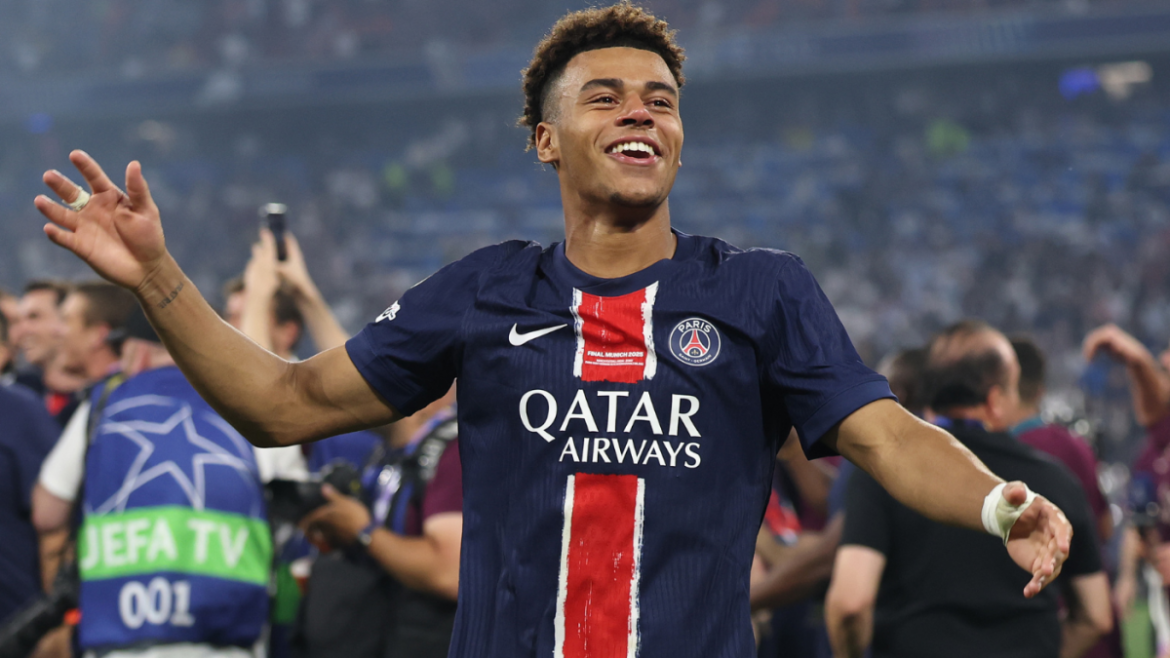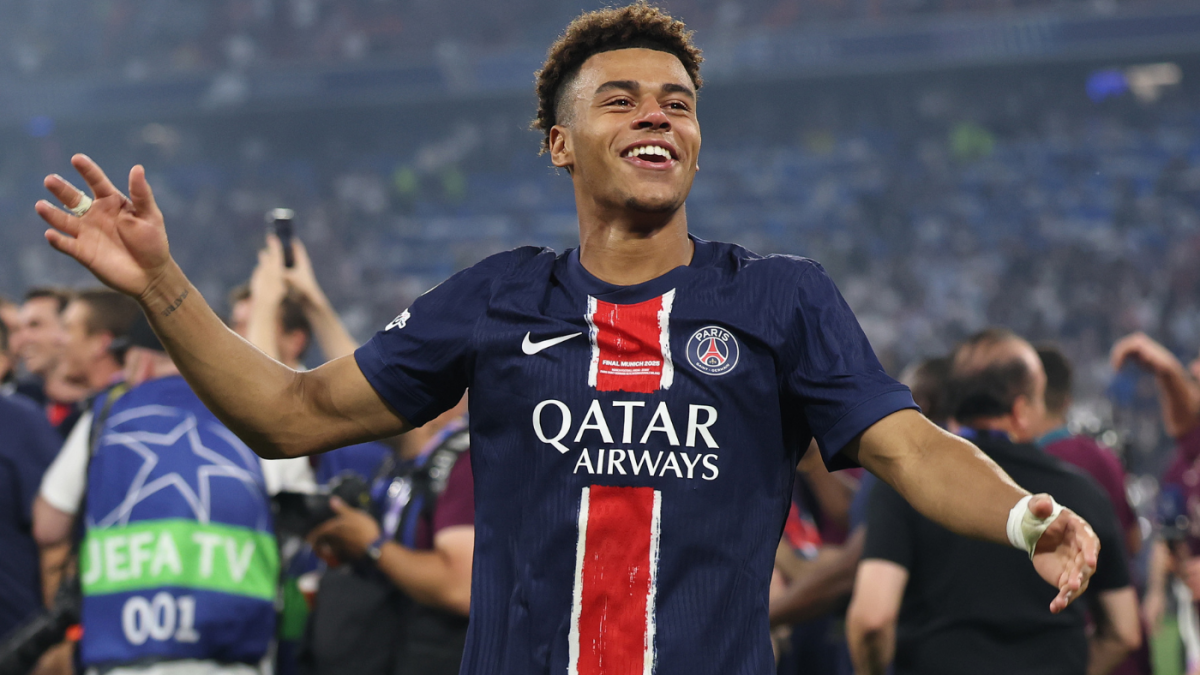The Rise of Paris Saint-Germain: A New European Power Emerges
The 2025 UEFA Champions League final in Munich was not just a game; it was a transformative moment in European football. Paris Saint-Germain (PSG) demolished Inter Milan 5-0, claiming their first-ever European Cup in a match that showcased the youth, talent, and strategic brilliance of a club determined to break longstanding barriers. This match marks the dawn of a new dynasty, symbolizing a shift in football’s power dynamics and highlighting the growing dominance of a youthful, dynamic PSG team under the guidance of Luis Enrique.
—
The Journey to Glory: PSG’s Path to the Champions League Title
PSG’s road to the 2025 Champions League final was marked by resilience and tactical maturity. Overcoming traditional European powerhouses such as Arsenal, Aston Villa, and Liverpool, PSG demonstrated a blend of flair and efficiency that set them apart. Under Luis Enrique’s stewardship, the squad has transitioned from a collection of gifted yet underachieving superstars into a cohesive, youthful unit that could rewrite the history books. Unlike previous incarnations that relied heavily on aging stars, the team’s core is young, electric, and full of promise.
This was a final featuring a clash of philosophies as well as squads—PSG’s rising generation against Inter’s experience, with Inter fielding the oldest average lineup among Champions League contenders this season. Yet the final outcome, a 5-0 rout, not only shattered expectations but also underscored the changing nature of elite football, where tactical intelligence and youthful energy can overwhelm seasoned veterans.
—
Youth vs. Experience: An Unequal Battle
Inter Milan approached the final embodying old-school resilience and tactical discipline—their average starting age over 30 years reflects a team built on experience and proven professionalism. Historically, Italian teams have excelled defensively and relied on seasoned players to navigate the pressures of continental football. Inter’s path to the final was impressive, highlighted by a thrilling semifinal victory over Barcelona, one of the greatest in Champions League history.
However, the Munich final demonstrated a wider gap: PSG’s youthful vigor, sheer skill, and attacking prowess were too much for Inter’s defense to handle. PSG’s brand of football—fast, fluid, and focused on creative freedom—proved superior to Inter’s stodgy, defense-first approach. This marked a symbolic shift, illustrating that in modern European football, experience alone no longer guarantees success.
—
The Players Behind the Triumph: Kylian Mbappé and the Youth Revolution
Central to PSG’s European conquest was Kylian Mbappé, now hailed as the true heir to the legacies of Cristiano Ronaldo and Lionel Messi. Mbappé’s blend of speed, technical prowess, and tactical awareness led the team’s ruthless offensive display in the final and throughout the tournament. His evolution from a promising youngster to a global superstar mirrored the club’s own transformation.
But PSG’s story is not only about one player. The squad’s strength lies in its collective youthfulness and depth. Luis Enrique’s strategy of trusting and developing young talent rather than relying solely on established stars paid dividends, heralding a new era for the club and French football more broadly. This newfound synergy between youth and tactical discipline offers a blueprint for success in Europe.
—
The Broader Impact: Redefining Football Power Structures
PSG’s emphatic victory and rise to Champions League champions have broader implications for European football. For the first time in 21 years, the finalists did not include an English, German, or Spanish club, signaling a diversification of power across the continent. PSG’s success challenges the long-standing dominance of clubs from these traditional strongholds and suggests a redistribution of footballing excellence.
Moreover, PSG’s triumph invites reflection on modern football’s financial and sporting models. Backed by substantial investment from Qatari ownership, the club has constructed a team capable of competing at the highest level via smart recruitment, youth development, and inspired coaching. The final demonstrated how targeted transfer policies and tactical innovation can elevate a club beyond domestic dominance to European supremacy.
—
The Match Itself: A Statement of Supremacy
The Champions League final in Munich, described by observers as a mismatch, turned into a dramatic showcase of PSG’s dominance. A 5-0 victory in a European final is a record margin that left the footballing world in awe. Inter’s defense crumbled under relentless pressure, while PSG’s attack sliced through their ranks with tactical precision and fluid interplay.
This performance not only secured PSG’s first European Cup but also silenced critics who questioned the club’s ability to compete on the big stage. Luis Enrique’s squad, devoid of the plague of underperformance that previously haunted them, exhibited a mature understanding of the game’s demands while maintaining their youthful exuberance.
—
Celebrations and Controversies: Football’s Emotional Highs and Lows
The triumph sparked celebrations across Paris, with fans flooding the Champs-Élysées in jubilation. Yet, the post-match atmosphere was not without controversy. Reports of a teenager filing an assault complaint after clashes on the streets highlight the darker side of football celebrations and the ongoing challenges surrounding fan behavior.
Meanwhile, the final’s outcome also reignited debates about the role of financial power in shaping modern football. Critics labeled the match “a farce” due to PSG’s overwhelming resources, while supporters viewed it as evidence of careful planning and sporting merit. This duality encapsulates the complex narrative surrounding football’s evolution in the 21st century.
—
A New Chapter Begins: PSG’s Dynasty in the Making
PSG’s Champions League victory is more than just a trophy; it signals the birth of a new powerhouse in European football. The club’s commitment to youth, innovative coaching, and strategic recruitment has created a team with the potential for sustained success. This triumph may well be the start of a dynasty, as PSG sets out to dominate not just domestically but across Europe for years to come.
The final also offers a lesson for established giants: adaptability and renewal are essential in the increasingly competitive landscape of global football. Youth and tactical intelligence, as exemplified by PSG, may now be the most valuable currency on the continent.
—
Conclusion: A Defining Moment for European Football
The 2025 Champions League final was a watershed moment. Paris Saint-Germain’s overwhelming 5-0 victory over Inter Milan redefined expectations and marked the rise of a new generation of footballing excellence. This triumph is a testament to the club’s strategic vision, the talent of its young stars, and the guidance of Luis Enrique.
As PSG lifts the European Cup for the first time, they not only celebrate a historic achievement but also announce their arrival as a dominant force in world football. The match in Munich will be remembered as the night a youthful, dynamic PSG team reshaped the footballing landscape and heralded a fresh era of continental competition.





